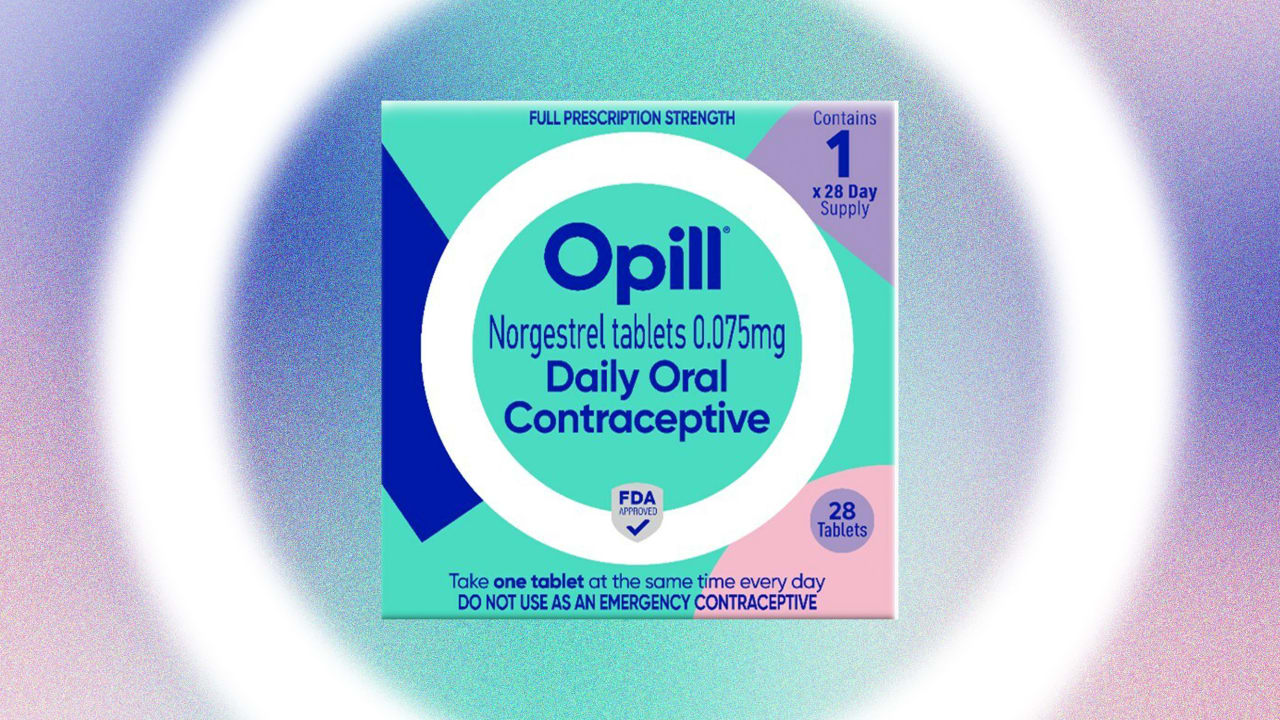The Rise Of OTC Birth Control: Redefining Reproductive Rights Post-Roe

Table of Contents
Increased Access and Affordability
The shift towards OTC birth control offers a significant pathway to improved accessibility, particularly for underserved populations. Currently, many women face barriers to accessing prescription birth control, including financial constraints, lack of insurance coverage, geographical limitations, and logistical challenges in scheduling appointments with healthcare providers. OTC birth control has the potential to overcome these obstacles.
The cost savings alone are a significant benefit. Prescription birth control, even with insurance, can be expensive, placing an undue burden on many individuals and families. OTC options promise to reduce these costs dramatically.
- Reduced reliance on healthcare providers and insurance coverage: Purchasing OTC birth control eliminates the need for doctor's visits and prescriptions, streamlining the process considerably.
- Improved affordability for low-income individuals and families: Lower costs make birth control more accessible to those previously unable to afford it, leveling the playing field for family planning.
- Increased convenience and discretion for purchasing: The ability to purchase birth control discreetly from pharmacies or other retailers adds a layer of privacy and convenience that many women greatly appreciate. This is particularly important for those living in areas with limited access to healthcare providers.
Empowering Women and Reproductive Autonomy
Expanded access to OTC birth control is not merely about convenience; it's fundamentally about empowering women to make informed choices about their reproductive health and future. Easy access directly translates to greater control over family planning. This autonomy is critical for enabling women to pursue their educational and career goals, while also making informed decisions about when and if they choose to have children.
By reducing the barriers to accessing contraception, OTC birth control plays a vital role in reducing unintended pregnancies. This has far-reaching implications, impacting not only individual lives but also broader societal outcomes.
- Greater control over family planning decisions: Women can proactively manage their reproductive health without the need for ongoing medical appointments or reliance on others.
- Reduced stigma associated with accessing birth control: The ease of purchase destigmatizes birth control, normalizing it as a common and necessary aspect of healthcare.
- Increased agency in managing reproductive health: This increased agency allows women to prioritize their overall well-being and take control of their lives.
Potential Challenges and Concerns
While the benefits of OTC birth control are numerous, it's crucial to acknowledge potential challenges. The successful implementation of wider access requires careful consideration and planning. One significant concern is the need for comprehensive education to ensure proper use and mitigate potential risks. Misuse of birth control can lead to unintended pregnancies or other health complications.
Questions remain about the safety and efficacy of different OTC birth control options. Thorough research and rigorous testing are vital to ensure that these methods are both safe and effective for a wide range of individuals.
- Importance of accurate information and proper usage instructions: Clear and accessible information is critical, including detailed instructions, potential side effects, and interactions with other medications.
- Potential for increased rates of incorrect medication use: Public health campaigns should address potential misuse and emphasize the importance of following instructions meticulously.
- Need for public health campaigns to promote responsible use: Educational initiatives can empower individuals to make informed decisions and utilize birth control safely and effectively.
The Role of Policy and Regulation
The regulatory landscape surrounding OTC birth control is complex and involves multiple stakeholders. The Food and Drug Administration (FDA) plays a crucial role in overseeing the safety and efficacy of these products, ensuring they meet stringent standards. State-level legislation can also significantly impact access, creating inconsistencies across different regions. The influence of lobbying groups and advocacy organizations further shapes the policy landscape.
Future policy changes will play a defining role in determining the extent of access and affordability. Proactive and informed policymaking is crucial to ensuring equitable access for all women.
- Review of FDA regulations for OTC birth control products: Ongoing reviews and updates of regulations are vital to ensure safety and efficacy.
- Potential impact of state-level legislation on access: Differing state laws can create disparities in access to OTC birth control.
- Influence of lobbying groups and advocacy organizations: Advocacy plays a critical role in shaping policy and ensuring equitable access.
The Future of OTC Birth Control
The future of OTC birth control is bright, with potential expansions beyond pills. Patches, rings, and other methods could become available over-the-counter, further diversifying options and catering to individual preferences. Ongoing research into new contraceptive technologies holds the promise of even more effective and convenient options in the years to come.
The long-term impact of wider OTC birth control access on public health outcomes will be significant. Reduced unintended pregnancies and improved access to family planning will have positive repercussions for individuals, families, and communities.
- Technological advancements in contraceptive methods: Innovation continues to drive the development of new and improved birth control options.
- Ongoing research on safety and efficacy of various options: Continued research is essential for ensuring the safety and effectiveness of all OTC birth control methods.
- Predictions for future accessibility and affordability: The trend toward increased access and affordability is expected to continue.
Conclusion:
The debate surrounding OTC birth control is multifaceted, with compelling arguments both for and against expanded access. However, the potential to improve women's reproductive health, empower individual choices, and redefine reproductive rights post-Roe is undeniable. OTC birth control represents a significant step forward in providing women with greater control over their bodies and futures. Stay informed about the ongoing developments in OTC birth control and advocate for policies that ensure access for all. Learn more about the benefits of OTC birth control and how you can support expanded access in your community.

Featured Posts
-
 Urdher Kontrolli Spak Banesa E Alda Dhe Xhovana Nikolli Nen Hetim
May 06, 2025
Urdher Kontrolli Spak Banesa E Alda Dhe Xhovana Nikolli Nen Hetim
May 06, 2025 -
 Jeff Goldblums I Dont Know Why I Just Do A Musical Journey With Ariana Grande And The Mildred Snitzer Orchestra
May 06, 2025
Jeff Goldblums I Dont Know Why I Just Do A Musical Journey With Ariana Grande And The Mildred Snitzer Orchestra
May 06, 2025 -
 Convicted Fraudster Defies Justice Walks The Runway
May 06, 2025
Convicted Fraudster Defies Justice Walks The Runway
May 06, 2025 -
 Berita Piala Asia U 20 Iran Menang Mudah 6 0 Lawan Yaman
May 06, 2025
Berita Piala Asia U 20 Iran Menang Mudah 6 0 Lawan Yaman
May 06, 2025 -
 Popovichs Uncertain Return Spurs Coaching Situation For 2023 2024
May 06, 2025
Popovichs Uncertain Return Spurs Coaching Situation For 2023 2024
May 06, 2025
